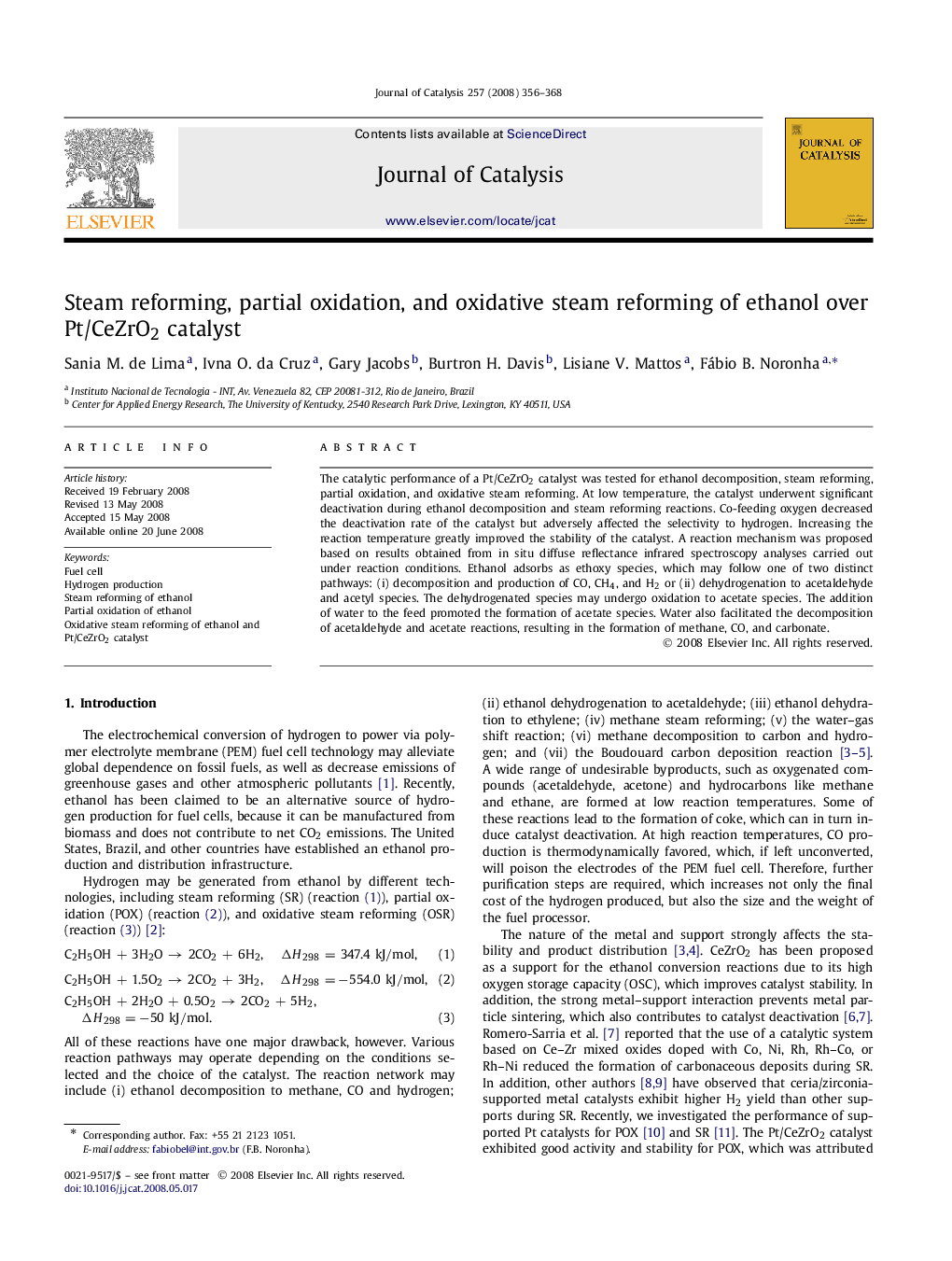| Article ID | Journal | Published Year | Pages | File Type |
|---|---|---|---|---|
| 62620 | Journal of Catalysis | 2008 | 13 Pages |
The catalytic performance of a Pt/CeZrO2 catalyst was tested for ethanol decomposition, steam reforming, partial oxidation, and oxidative steam reforming. At low temperature, the catalyst underwent significant deactivation during ethanol decomposition and steam reforming reactions. Co-feeding oxygen decreased the deactivation rate of the catalyst but adversely affected the selectivity to hydrogen. Increasing the reaction temperature greatly improved the stability of the catalyst. A reaction mechanism was proposed based on results obtained from in situ diffuse reflectance infrared spectroscopy analyses carried out under reaction conditions. Ethanol adsorbs as ethoxy species, which may follow one of two distinct pathways: (i) decomposition and production of CO, CH4, and H2 or (ii) dehydrogenation to acetaldehyde and acetyl species. The dehydrogenated species may undergo oxidation to acetate species. The addition of water to the feed promoted the formation of acetate species. Water also facilitated the decomposition of acetaldehyde and acetate reactions, resulting in the formation of methane, CO, and carbonate.
